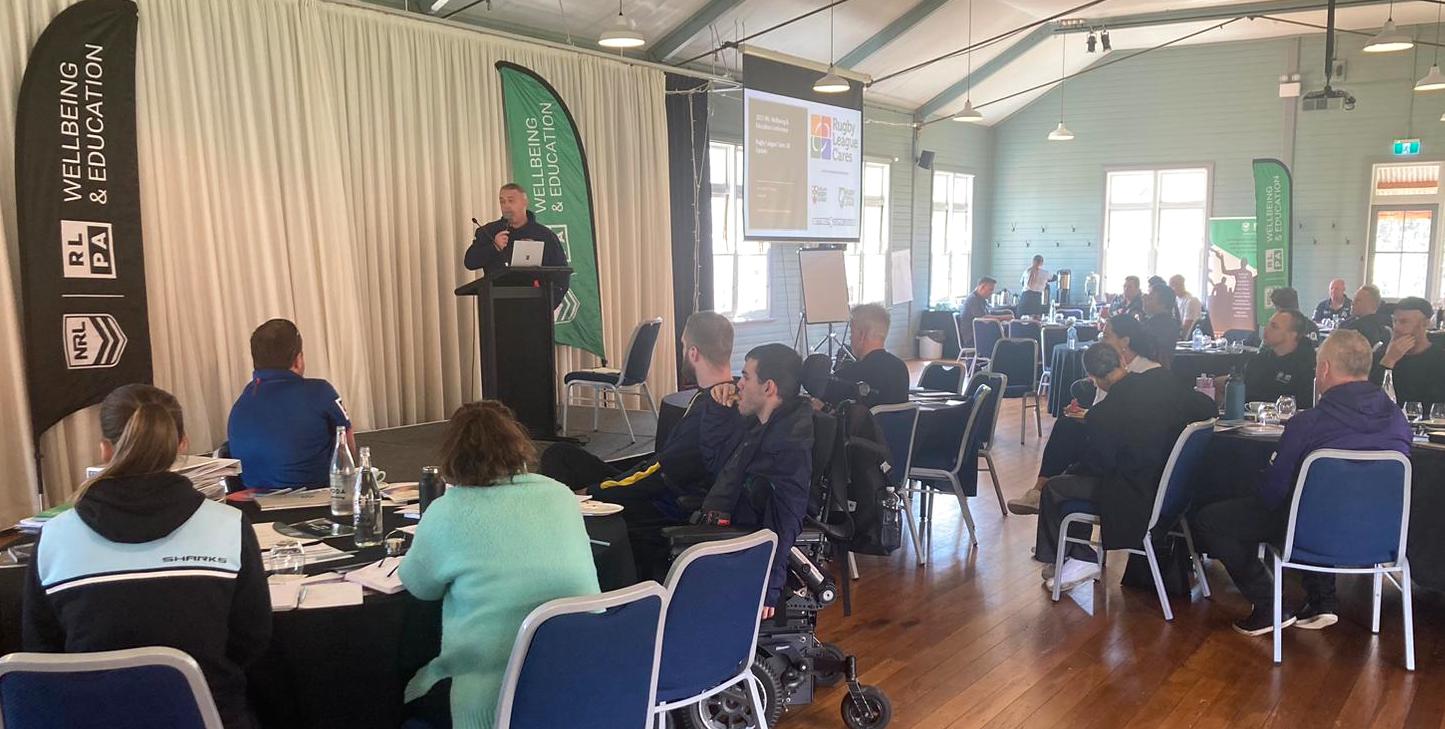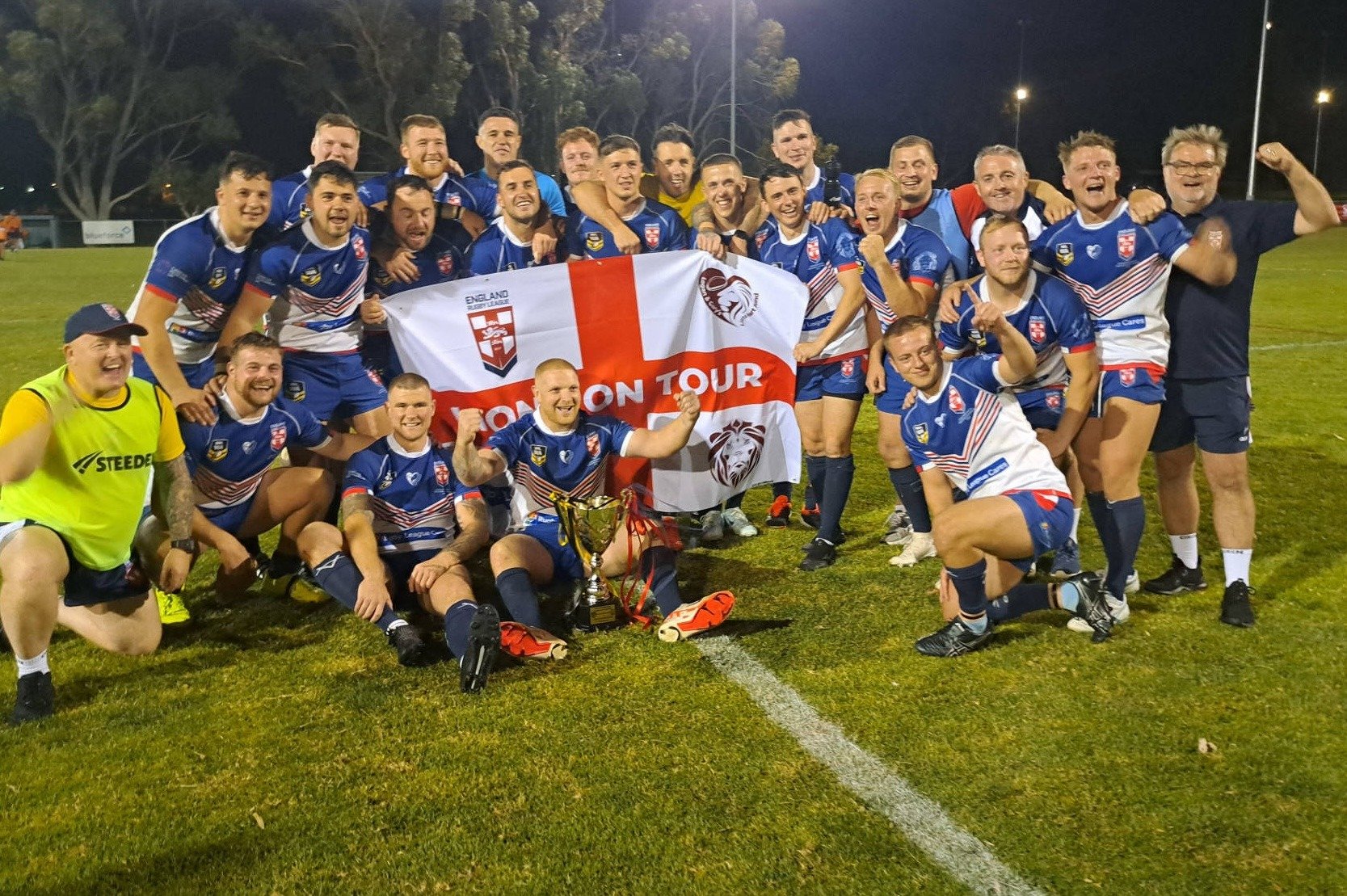Mental wellbeing and resilience issues are becoming more prevalent in our working and playing lives.
Healthcare providers Bupa say the number of employees claiming for mental health treatment has more than doubled over the past 10 years.
The start of this decade and the anxiety created by the global pandemic has amplified the need for us to be mindful of our own mental states, whilst reinforcing the benefits of arming ourselves with the numerous wellbeing support tools and skills.
Developed originally by the New Economics Foundation the ‘Five Ways to Wellbeing’ are a set of evidence-based activities that people can use to support health and wellbeing.
Rugby League Cares has been promoting the benefits of the five key areas throughout its delivery of its mental fitness programme, Offload, which sees former professional rugby players sharing their lived experience with participants to deliver a toolbox of useful techniques and practises.
In this blog we explain each of the 5 ways to wellbeing:
- Connect
- Be active
- Keep learning
- Take notice
- Give
Connect
“You may say that I’m a dreamer, but I’m not the only one. I hope one day you’ll join us. And the world will live as one” - John Lennon
It’s important to connect with people around you. You should consider family and friends or close acquaintances with whom you have things in common. Strong relationships can be the foundations on which we develop personally and professionally. When these relationships are nurtured correctly they can enhance your life.
Loneliness is related to social isolation and perceived lack of companionship and shows adverse effects on biological stress processes that may be relevant to health.
The most striking evidence comes from prospective studies of mortality across industrialised nations. These studies consistently show that individuals with the lowest level of involvement in social relationships are more likely to die than those with greater involvement.
Be active
“Training gives us an outlet for supressed energies created by stress and thus tones the spirit just as exercise conditions the body” - Arnold Schwarzenegger
As rugby players you will have first-hand experience in the benefits of exercise, so forgive us if you’re having to suck eggs. As you know, the human body was built to move and before rugby came along evolution developed our physical tools so we could hunt, fight, farm and flee if needed (and now chase each other around the field).
The sedentary lifestyle that modern living facilitates has us eating more and moving less. So, make a conscious effort to go for a walk or run. Find a physical pursuit that will test you, but importantly that you enjoy and connects with you on a motivational level. This will make you feel great both physically and mentally, it’s a reward system that our prehistoric ancestors have left with us to encourage movement.
Exercise makes you feel good because it releases endorphins and serotonin that improve your mood. It can also get you out of the front door, helping to reduce any feelings of loneliness and isolation, and put you in contact with other people.
As a rugby player you may already exercise daily, and you may also have to regulate your exercise to rest ratio. Going for a low impact walk with a family member might help cross out two of the ‘five ways’ by helping you connect and exercise at the same time.
If you exercise regularly , it can reduce your stress and symptoms of mental health conditions like depression and anxiety, and help with recovery from mental health issues.
Exercise also helps improves your sleep, which is important in many ways.
Keep learning
“Reading is to the mind what exercise is to the body” - Joseph Addison (English poet, playwright and politician)
Having a love of learning can be like food for the soul. Re-engaging with interests you once had or learning something completely new can stimulate your mind and body.
When looking for an activity to learn, much like exercise, make sure it’s something you find fun and stimulating.
Learning something and expanding your understanding and knowledge can help you feel more confident and be personally engaging.
The research
Reading can reduce stress by over 60 per cent.
Learning fosters a sense of identity; an ability to cope and a feeling of purpose in life; a greater level of wellbeing, especially in older adults; an increase in life satisfaction and positive changes in mental wellbeing and a sense of purpose.
Take notice
"Do not dwell in the past, do not dream of the future, concentrate the mind on the present moment" - Buddha
Taking Notice means being present and conscious of the now and NOT worrying about the future or what mistakes we’ve made in the past.
It also means quietening down the critical inner voice, most of us can identify with the saying ‘I’m my own harshest critic’. In the 21st century it also means putting down the smart phone and stepping away from social media.
The research
There have been many studies based on stress reduction and other mental conditions.
One study found supporting evidence that a state of present-moment awareness enhances self-regulation in the presence of negative emotion.
Further research found mindfulness had positive effects on stress, anxiety, depression, distress, quality of life, and effects on burnout.
Mindfulness also leads to higher outcomes for coping with stress and emotional wellbeing.
Give
The power of giving has been known throughout time as a pathway to happiness, responsibility and enlightenment.
So, look for reasons to give to people. It can be your time, money, patience, support or knowledge. Giving and investing your energy into someone else’s cause will often leave you feeling happy and it has some great by-products like linking you to a wider network.
These 20th century greats knew the importance of giving:
“We make a living by what we get. We make a life by what we give” - Winston S. Churchill
“Those who are happiest are those that do the most for otherSs - Booker T Washington
“The meaning of life is to find your gift. The purpose of life is to give it away” - Pablo Picasso
“The best way to find yourself, is to lose yourself in the service of others" - Mahatma Gandhi
The research
Research is indicating people that spend money on others are feeling happier because of it. To support this a controlled experiment at the University of British Columbia offered students money to spend either on themselves or on others. The research found that those that spent the money on others rated themselves happier than those that spent the money on themselves.
A further study in 2010 commented on how 68 per cent of respondents that volunteered in the previous year felt physically healthier, 78 per cent felt less stressed and 89 per cent felt that volunteering had improved their sense of wellbeing.
Final thoughts
As the mist lifts on the taboo subject of mental health and wellbeing, it has become clear that by following some positive steps we can significantly improve our chances of maintaining a healthy mindset. For most players a healthy happy mind means better concentration, preparation and on field excellence.
The ‘Five Steps to Wellbeing’ may not be the answer for everyone, but the research-based tips help arm us with the support tools and skills needed to improve our mental wellbeing.
Related Articles


RL Cares at NRL player welfare conference 2023
John Ledger | August 24, 2023
Rugby League Cares has issued a heartfelt ‘thank you’ to Australia’s ...
Read More
.jpg)
Player welfare, concussion and lawsuits with James Graham
James Graham | November 15, 2024
Former St Helens and England prop James Graham chairs a fascinating ...
Read More